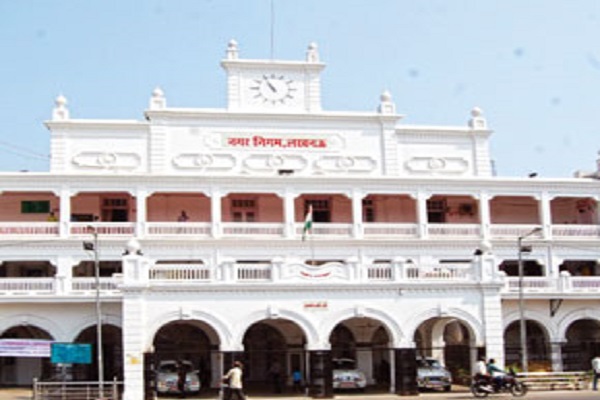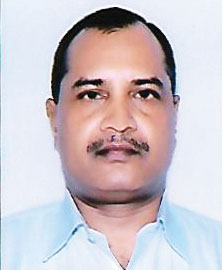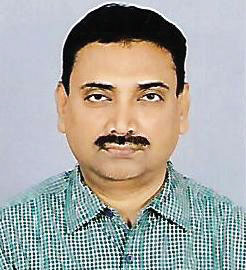
Lucknow emerged first in the fast-track round of smart cities challenge and we wish to leverage its culture and heritage by investing in inclusive and transformative solutions that enhance quality of life of its people, say Commissioner Uday Raj Singh and Additional Commissioner P K Srivastava of Lucknow Municipal Corporation (LMC) in conversation with Arpit Gupta of Elets News Network (ENN)
What is the progress of Smart City plan of Lucknow Municipal Corporation?
We are in process of constituting Special Purpose Vehicle (SPV) for executing smart city plan. The state government has approved its structure. Now, we are holding talks with the Lucknow Development Authority (LDA) to get a separate building allotted to make an independent office for smart city. A Smart City requires delivering smart services to its citizen. Due to age-old infrastructure, urban transport or urban mobility is a major challenge in Lucknow. With the help of state traffic department, we are working on finding smart solutions. These solutions will be implemented through convergence, which involves


Commissioner, Lucknow Municipal Corporation
A Smart City requires delivering smart services to its citizen. Due to age-old infrastructure, urban transport or urban mobility is a major challenge in Lucknow. With the help of state traffic department, we are working on finding smart solutions. These solutions will be implemented through convergence, which involves equal contribution of city bus transport, traffic police department and Smart City.
We have plans to install CCTV cameras to keep a vigil at bus shelters. We will later provide real-time information about city buses to passengers at bus stops through GPS.

Under the chairmanship of our Commissioner, a meeting has already been held with all concerned stakeholders.
We are preparing a city-level portal which will be a tool of communication between government-to-government, government to- citizen and citizen-to-government. After integration of information, the portal will also have other facilities such as grievance redressal and payment of various taxes and fees at one platform.

Additional Commissioner, Lucknow Municipal Corporation
Do you have a separate development plans for Old and New Lucknow?
In area-based development, we will undertake preservation of Qaiserbagh heritage area. There are two types of heritage areas in Lucknow — old Lucknow and the other heritage area. Most of the heritage area in Qaiserbagh is under jurisdiction of either ASI or the State Archaeological Department. All features of Smart City have to be incorporated in Qaiserbagh, an over 813-acre area. We will focus on conserving the heritage buildings and increase the usage of open spaces. The vacant spaces may be utilised for trees and concerned shop owners and respective houses may be given moral responsibility for the upkeep of the saplings.
In area-based development, we have to work on infrastructure, besides the smart solutions. We will be responsible for drainage system, sewerage system, water supply, utility duct, footpath, parking, solar panel at the rooftops and water recycling among other things.
Smart solution and smart infrastructure will give a facelift to the outlook of Qaiserbagh area which will be made an example for the remaining areas in the city. Later, it can be replicated in other parts of the city.
What major challenges are you facing to execute the Smart City plan?
Of the various challenges, the biggest one is encroachment. The core of the city is left with barely any space. Thus, unruly vendors and illegal parking lots have mushroomed on roads and streets over the years. The encroachment needs to be removed. Concerned police station may be given responsibility to ensure free passages. To mitigate parking problem, we have a provision for multi-level parking. Adequate amount of land has to be acquired. We are in talks with RWAs, citizens, corporators and all stakeholders to resolve the challenges.
Traffic snarls is another major problem. We will have smart urban transport in place for the citizens. Improved frequency of public transport vehicles, easy access to transport, smaller vehicles causing lesser congestion, easy travel and quick public information system are the pillars of smart transport for Smart City.
Aligned with the concept of Smart City which keeps citizen consultation on a top priority, we will proceed for next step. We are going to conduct an area-based survey to get a clear picture of the city and will create a base map to understand problem areas. Before implementing our plan, we will check the placement of transformers, apt location for laying PNG pipelines etc so that it doesn’t cause hurdle for other departments.
Before implementing our plan, we will check the placement of transformers, apt location for laying PNG pipelines etc so that it doesn’t cause hurdle for other departments.
We have plans to install CCTV cameras to keep a vigil at bus shelters. We will later provide real time information about city buses to passengers at bus stops through GPS
What role do you see of technology and solution providers?
The ICT plays a vital role in building Smart City. We have also adopted modern technology to offer better citizen-centric services. City portal is a part of eGovernance. Real time information of bus for commuters will become possible through Information Technology. Besides, rooftop solar panel, underground duct etc. needs non-IT technology. Digital technology will be used for providing solution to city problems.
We have signed a MoU with the European Business and Technology Centre (EBTC) for smart development of Lucknow. The EBTC will support in promoting European clean technologies in the state capital. The EBTC experts have the capacity to help in providing smart city solutions, innovative ideas and programmes for developing Lucknow as smart city.
What plans do you have in store to meet required funds?
The Smart City fund is limited to Rs 1,000 crore, which includes 500 crore of Municipal Corporation. So, both type of development works will be carried out through convergence. Partial contribution of money will be done from Smart City fund while the remaining expenses will be incurred through government schemes like Swachh Bharat, and solid waste management funds of Municipal Corporation.
Be a part of Elets Collaborative Initiatives. Join Us for Upcoming Events and explore business opportunities. Like us on Facebook , connect with us on LinkedIn and follow us on Twitter, Instagram.











